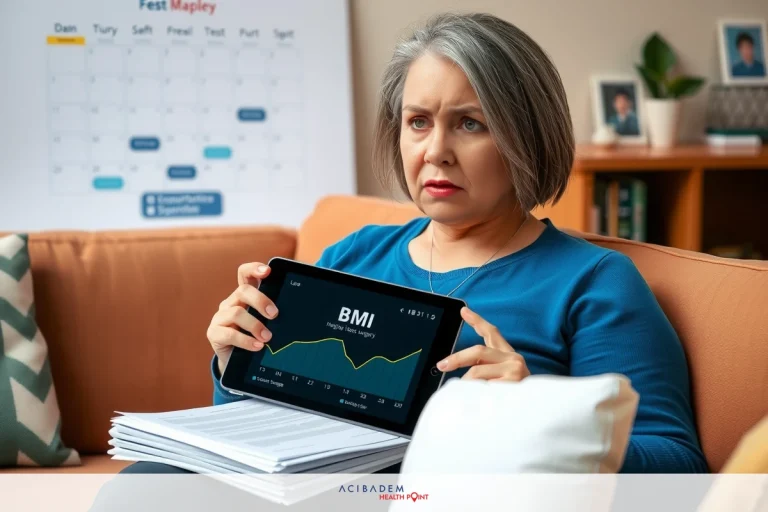Does Medicaid Cover Bariatric Surgery in North Carolina?
Does Medicaid Cover Bariatric Surgery in North Carolina? Navigating the healthcare system can be a complex task, especially when it comes to understanding what procedures are covered by insurance. This is particularly true for procedures like bariatric surgery, which is often essential for those struggling with obesity. It is crucial to know if Medicaid, a significant provider of health coverage in North Carolina, covers this procedure.
When exploring the topic of Medicaid coverage for bariatric surgery in North Carolina, it’s important to consider several factors. These include understanding the eligibility criteria set by Medicaid and the necessity of consulting with your insurance provider. With this knowledge, you will be better equipped to navigate your healthcare options and make informed decisions about your treatment plan.
Medicaid Coverage for Bariatric Surgery in North Carolina
In North Carolina, Medicaid does provide coverage for bariatric surgery, but it’s not as simple as just scheduling the procedure. There are specific criteria that must be met in order for a patient to qualify for coverage. These guidelines are put in place to ensure that the procedure is medically necessary and that the patient is prepared to make the lifestyle changes required for the surgery to be successful.
Medicaid coverage for bariatric surgery includes several different types of procedures, such as gastric bypass, sleeve gastrectomy, and adjustable gastric banding. However, the exact procedure covered may depend on the individual patient’s medical history and current health status. Before approval, Medicaid requires a comprehensive examination by a healthcare provider to determine if the patient is a good candidate for surgery. This examination includes a thorough assessment of the patient’s physical health as well as psychological readiness.

While Medicaid does cover bariatric surgery in North Carolina, it’s important to remember that coverage does not necessarily mean that all costs will be covered. Depending on the specifics of your Medicaid plan, you may still be responsible for certain out-of-pocket costs such as co-pays or deductibles. Additionally, certain related services, like nutritional counseling or follow-up care, may also be covered under your Medicaid plan. It’s crucial to fully understand your coverage before moving forward with any medical procedure.
Eligibility Criteria for Medicaid Coverage
One of the main qualifications for Medicaid coverage of bariatric surgery in North Carolina is the patient’s
Body Mass Index (BMI). Typically, to qualify for bariatric surgery under Medicaid, a patient must have a BMI of 35 or higher. This number indicates severe obesity and is commonly used as an indicator of whether the risks associated with obesity outweigh the potential risks of surgery.
In addition to having a high BMI, patients often must also have at least one obesity-related comorbidity. These can include conditions like type 2 diabetes, hypertension, or sleep apnea. Having these health issues not only increases the dangers associated with obesity but also illustrates the potential health benefits that could be achieved through bariatric surgery. A comprehensive medical evaluation will usually be conducted to ascertain if these conditions are present.
Lastly, before approving coverage, Medicaid typically requires documented proof that other weight loss attempts have been unsuccessful. This could include involvement in supervised weight loss programs, dietitian consultations, or use of prescription weight loss medications. The aim here is to demonstrate that non-surgical interventions have been tried and were ineffective, thus strengthening the case for surgical intervention. Each patient’s journey is unique, so it’s always important to discuss these requirements with your healthcare provider to understand your specific situation better.
Consulting Your Insurance Provider
Understanding your insurance coverage is key before undertaking any significant medical procedure, including bariatric surgery. While we’ve outlined the general guidelines for Medicaid coverage in North Carolina, it’s essential to remember that individual plans may vary. Therefore, consulting directly with your insurance provider will offer the most accurate and detailed information about your specific coverage.
When discussing your insurance coverage, be sure to ask about all associated costs of the surgery. While the operation itself may be covered, other elements like pre-surgical consultations, post-operative care, and possible complications might not be included in your plan. By thoroughly understanding your coverage, you can avoid unexpected expenses and plan accordingly for your treatment.
It’s also worth noting that insurance providers may have specific requirements for surgery approval. For instance, some insurers may mandate a psychological evaluation or participation in a medically supervised weight loss program before approving bariatric surgery. Your healthcare provider can help you navigate these requirements and ensure you’re on track for approval. Trusting and open communication with both your healthcare provider and insurance provider is crucial in this process.
Frequently Asked Questions
Is bariatric surgery covered by Medicaid in all states?
Medicaid coverage for bariatric surgery varies from state to state. While bariatric surgery is generally covered by Medicaid, it's important to check with your specific state's Medicaid program to understand the coverage criteria and requirements.
What documentation is required for Medicaid coverage of bariatric surgery?
Medicaid typically requires documentation of a high Body Mass Index (BMI), evidence of obesity-related comorbidities, and proof that other weight loss attempts have been unsuccessful. Consult with your healthcare provider and Medicaid program to understand the specific documentation needed.
Will I still have any out-of-pocket expenses if I have Medicaid coverage for bariatric surgery?
While Medicaid provides coverage for bariatric surgery, there may still be some out-of-pocket expenses such as co-pays or deductibles. It's important to review your specific Medicaid plan to understand the extent of coverage and any potential financial responsibilities.
Can I choose any bariatric surgeon if I have Medicaid coverage?
Medicaid may have specific requirements regarding the choice of bariatric surgeons. It's essential to consult with your insurance provider to determine if there are any limitations or preferences when selecting a surgeon within their network.
How long does the approval process for Medicaid coverage of bariatric surgery typically take?
The approval process for Medicaid coverage of bariatric surgery can vary depending on various factors, including the complexity of your case and the efficiency of the review process. It's recommended to inquire directly with your Medicaid program about estimated timelines and any necessary steps to expedite the approval process.











